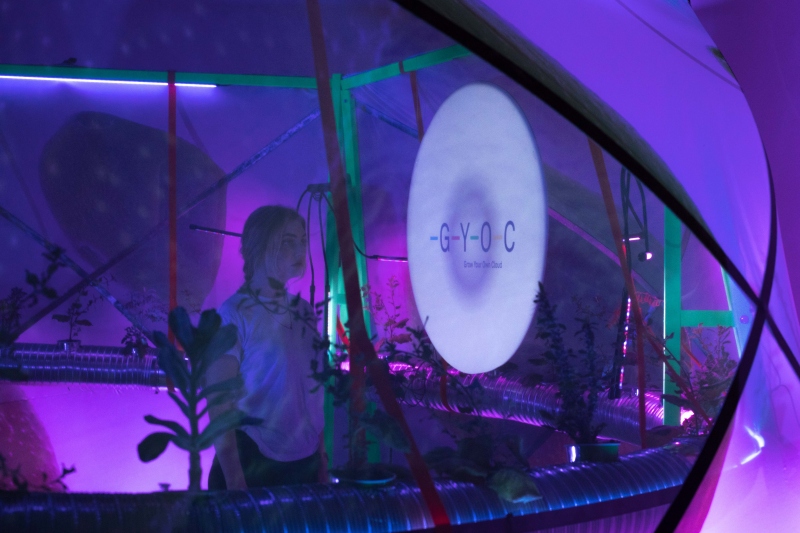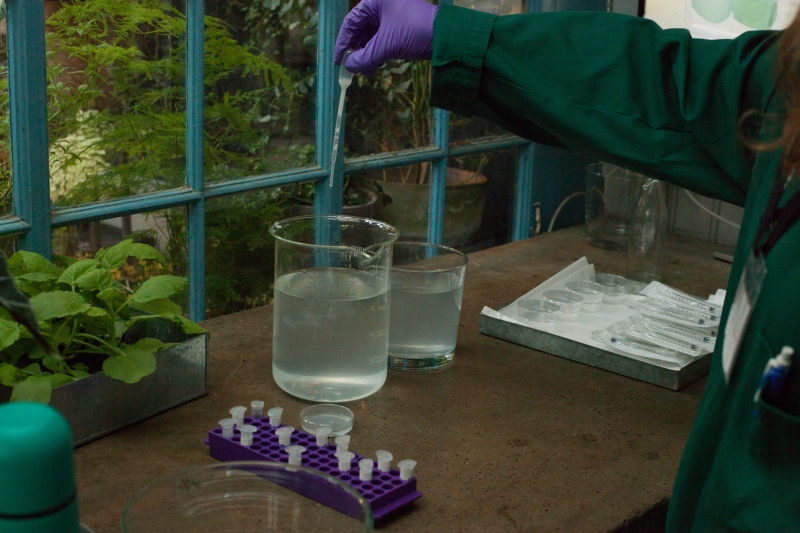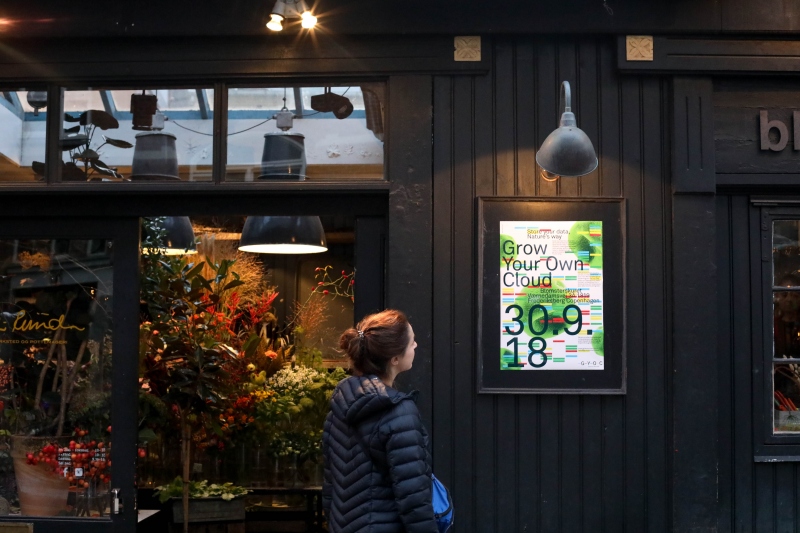
Grow Your Own Cloud is a research led organization exploring alternative relationships with nature and technology.
Grow Your Own Cloud is an art science exploration which looks to biology and natural systems for inspiration in order to reform human associations with data. The project promotes clean data futures and seek to alleviate the threat of ‘Data Warming and is dedicated to creating a future in which your data blooms and grows both at home and in data forests. Grow Your Own Cloud re-imagines the cloud by storing data nature's way, in the DNA of plants. The initiative seeks to create a new type of cloud, one that is organic, rather than silicon, and which emits oxygen rather than CO2. This involves state of the art DNA data science, a technology which has the potential to store all of the world's data in just 1 kg of DNA. By storing data nature’s way, in the DNA of plants, this work discusses the potential for truly green, carbon absorbing data storage, owned by the public rather than monopolistic corporations. It simultaneously probes at the new pressures that arise from biological modification, especially intellectual, ethical and regulatory issues. It encourages reflection around political and environmental concerns pertaining to the cloud, employing the demonstrative power of art and realistic possibilities of design.

In 2018, through collaboration with the University of Copenhagen Plant Genetics Lab, we developed the ‘Data Flower-Shop’ at Blomsterskuret, Copenhagen, turning a flower shop into a data centre from the future. The experience sought to use the everyday setting of the flower-shop to transport people into a future where nature and data are no longer remote, corporate-owned, alienating entities, but local, familiar, community spaces filled with valuable data. By deploying scientific knowledge outside of the lab, and using artistic devices outside of the gallery, we were able to educate and engage people, spark knowledge exchange, unexpected ideas and dialogue on the future of data, biotechnology and our relationship with nature and technology.



The latest implementation of the project is a contemporary Data Garden, a new type of data infrastructure that promotes unification between people, ecosystems and technology. The installation features plants encoded with data. The encoding process involves converting digital data such as text, JPEGs and MP3s into a biological format, DNA, using ACGT rather than binary.
Within the installation, the plants’ DNA is decoded in real time using the latest genetic sequencing technologies, and displayed in space, revealing hidden messages. Working with nature to alleviate the threat of ‘data warming‘, the Data Garden invites visitors to experience a new materiality around data, and explore a world in which data storage is truly green, and exists as an accessible public resource that is shareable within communities.

Employing design fiction techniques alongside material science proved to be a powerful combination. The Flower-Shop became a community gathering space, in which people could explore what data truly meant to them, discuss the harmful effects of the current data industry and debate the ethics of new breakthroughs in biotechnology.


The Data Garden is a constructed organism that combines not only biological and technological elements, but produces an immersive, constantly changing environment, in which humans and nonhumans learn, evolve and grow. This type of plant-based data centres allow organisms of various types to flourish, marrying principles of working with nature and data, to create a self-sufficient plant-data ecosystem.

The work drew the attention of the UN who awarded it a prize as part of the Summer of Solutions 2019. Subsequently GYOC was invited to speak at the United Nations during the World Youth Climate Summit 2019, addressed audiences at COP25, and various events at Davos 2020.




Credits:
Collaboration: Cyrus Clarke
Visual Design: Kuba Bogacki, Krzysztof Seyfried, Aleksander Znosko
Data Garden Design: (ab)Normal
Research Scientist: Jeff Nivala
Awards:
Science Breakthrough on the Year 2022 Falling Walls Foundation
2022, The Data Garden
S+T+ARTS Prize, Honorary Mention
2021, Data Garden
Dezeen Awards, Sustainable Design, Longlisted
2020, The Data Garden
IxDA Awards, Shortlisted
2020, Grow Your Own Cloud
United Nations Until Ideas, Winner
2019, Grow Your Own Cloud
Prix BLOXHUB Interactive, Honorary Mention
2019, Grow Your Own Cloud
Core77 Design Awards, Speculative Design
2019, Grow Your Own Cloud